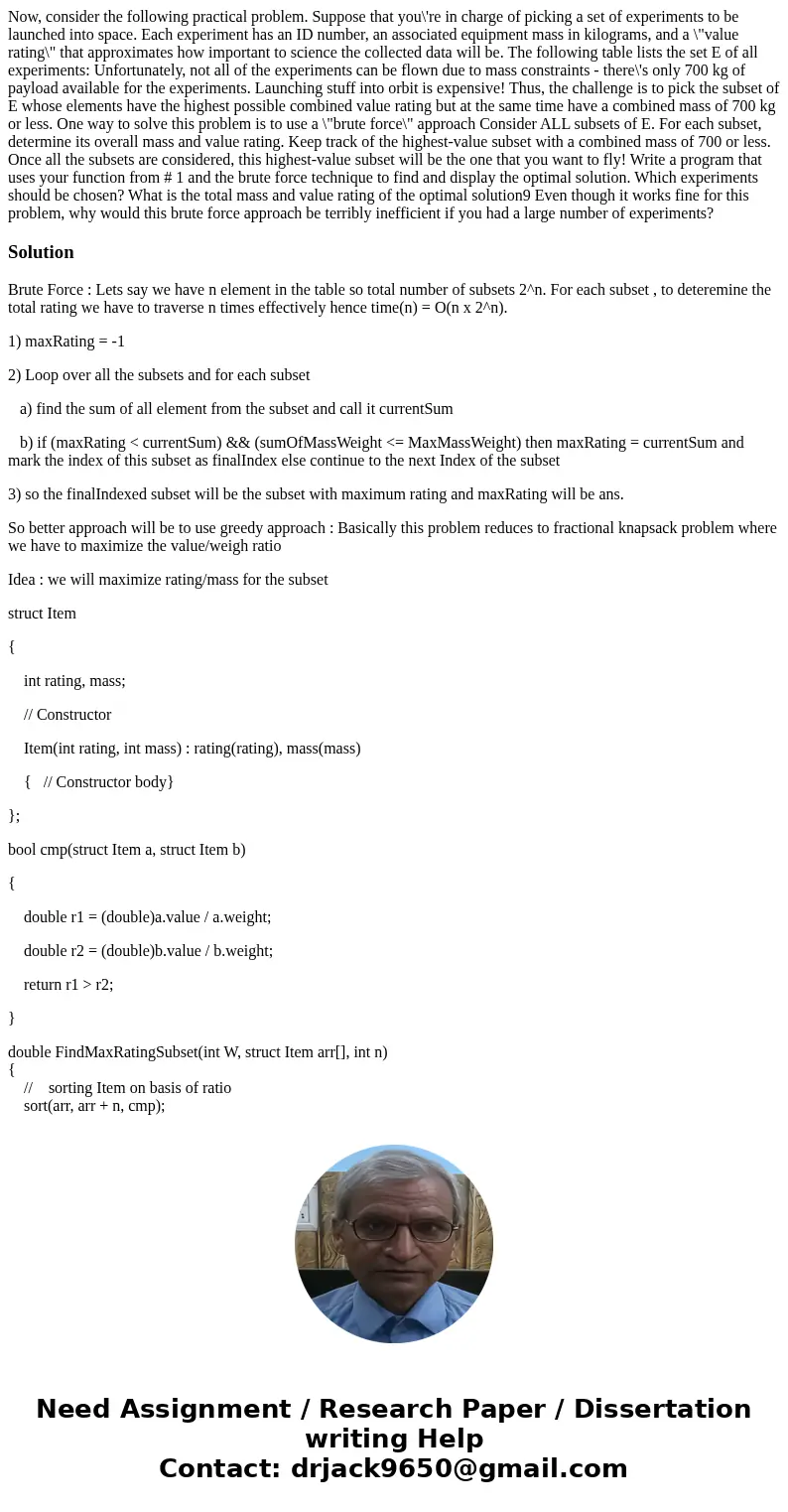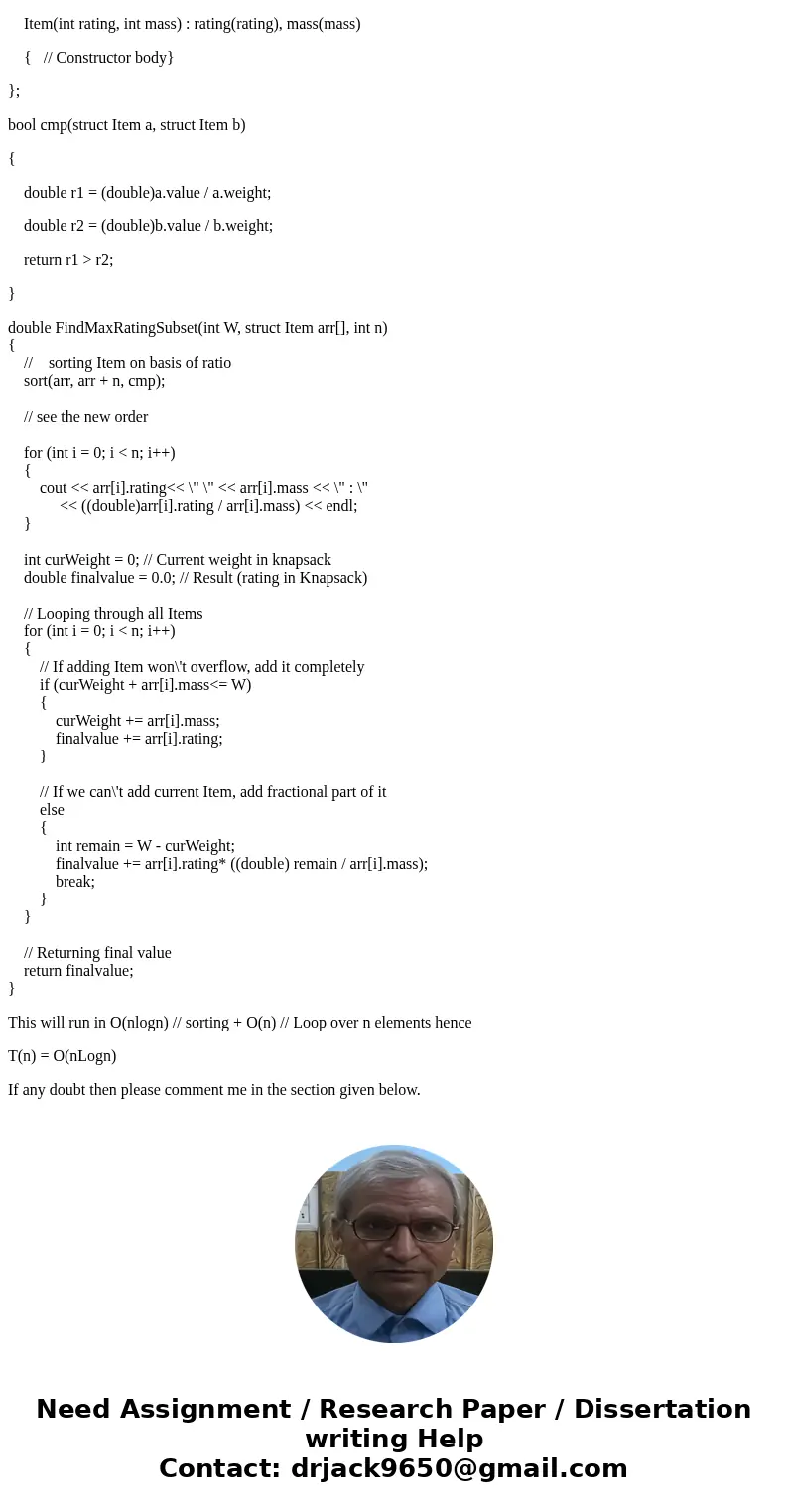Now consider the following practical problem Suppose that yo
Solution
Brute Force : Lets say we have n element in the table so total number of subsets 2^n. For each subset , to deteremine the total rating we have to traverse n times effectively hence time(n) = O(n x 2^n).
1) maxRating = -1
2) Loop over all the subsets and for each subset
a) find the sum of all element from the subset and call it currentSum
b) if (maxRating < currentSum) && (sumOfMassWeight <= MaxMassWeight) then maxRating = currentSum and mark the index of this subset as finalIndex else continue to the next Index of the subset
3) so the finalIndexed subset will be the subset with maximum rating and maxRating will be ans.
So better approach will be to use greedy approach : Basically this problem reduces to fractional knapsack problem where we have to maximize the value/weigh ratio
Idea : we will maximize rating/mass for the subset
struct Item
{
int rating, mass;
// Constructor
Item(int rating, int mass) : rating(rating), mass(mass)
{ // Constructor body}
};
bool cmp(struct Item a, struct Item b)
{
double r1 = (double)a.value / a.weight;
double r2 = (double)b.value / b.weight;
return r1 > r2;
}
double FindMaxRatingSubset(int W, struct Item arr[], int n)
{
// sorting Item on basis of ratio
sort(arr, arr + n, cmp);
// see the new order
for (int i = 0; i < n; i++)
{
cout << arr[i].rating<< \" \" << arr[i].mass << \" : \"
<< ((double)arr[i].rating / arr[i].mass) << endl;
}
int curWeight = 0; // Current weight in knapsack
double finalvalue = 0.0; // Result (rating in Knapsack)
// Looping through all Items
for (int i = 0; i < n; i++)
{
// If adding Item won\'t overflow, add it completely
if (curWeight + arr[i].mass<= W)
{
curWeight += arr[i].mass;
finalvalue += arr[i].rating;
}
// If we can\'t add current Item, add fractional part of it
else
{
int remain = W - curWeight;
finalvalue += arr[i].rating* ((double) remain / arr[i].mass);
break;
}
}
// Returning final value
return finalvalue;
}
This will run in O(nlogn) // sorting + O(n) // Loop over n elements hence
T(n) = O(nLogn)
If any doubt then please comment me in the section given below.


 Homework Sourse
Homework Sourse